We have a track record of conducting impactful, future-focused research on digital work. We have studied private, public and third sector organization settings. Below you can read a selection of our work published in the leading academic and practitioner journals.
2024
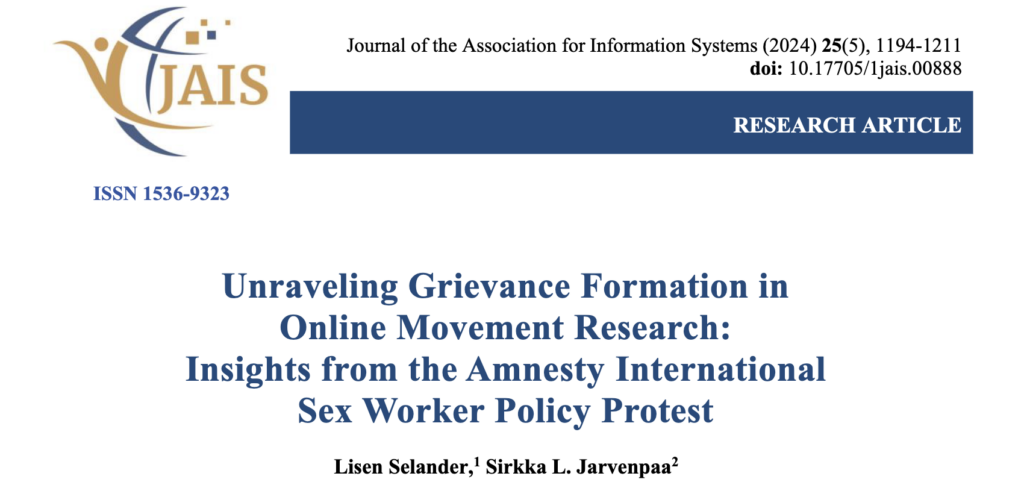
In today’s digital age, not all online protests succeed in becoming powerful movements. This article dives into why some online movements fail, using the example of a protest against Amnesty International’s policy on sex work. It explores how shared grievances are crucial for mobilizing people and sustaining movements, but often get lost in the noise of social media.
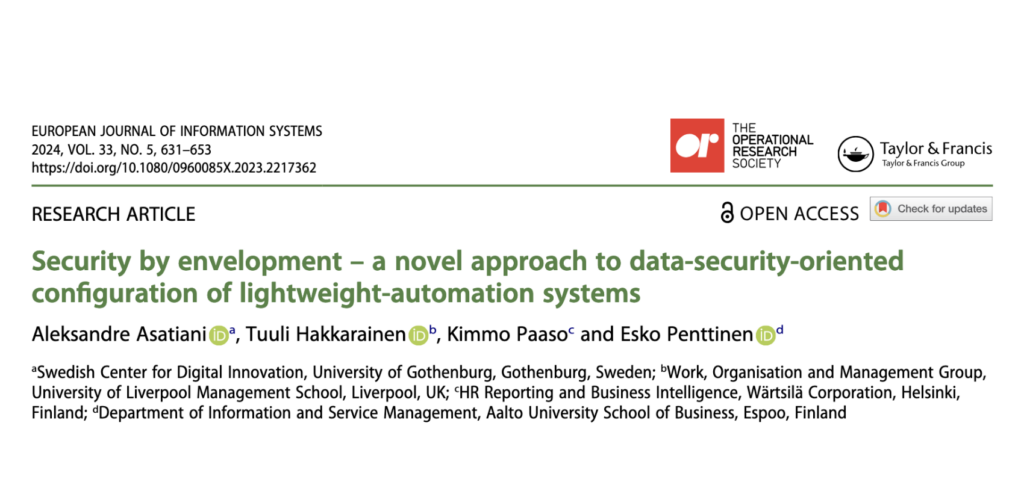
As organizations increasingly deploy robotic process automation (RPA) to handle sensitive data, security concerns become paramount. This study presents a novel approach called “security by envelopment” that allows organizations to maintain both efficiency and data security when automating processes. Through an action design research project at Wärtsilä Corporation, the researchers demonstrate how carefully designed digital “envelopes” around software robots can ensure secure handling of sensitive information while preserving the cost-effectiveness that makes RPA attractive.
2023
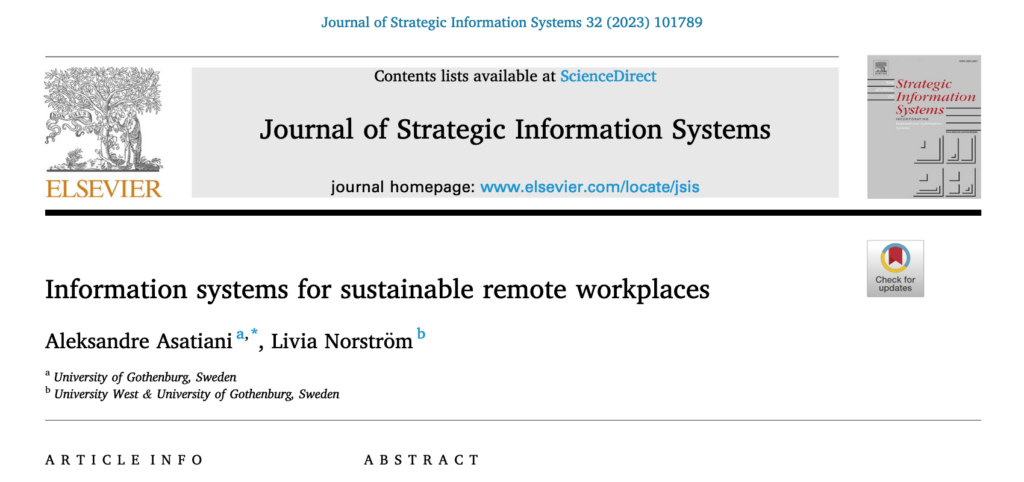
This article dives into the challenges and opportunities of remote workplaces, exploring how information systems can support worker well-being, productivity, and work-life balance. By consolidating insights from 187 studies, it offers a comprehensive framework to help organizations create healthier, more effective remote work environments.
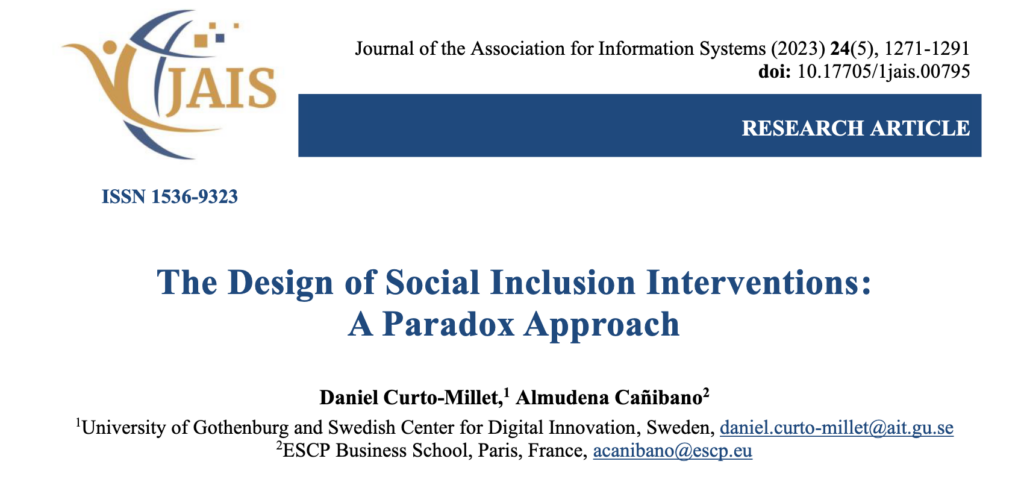
In an effort to understand why many social inclusion interventions fail, this study explores the paradoxical relationship between social inclusion and exclusion on a crowdsourcing platform. The research reveals that inclusion and exclusion are not opposites but are intertwined, with design choices in information systems playing a crucial role in managing these tensions. The authors propose a framework with four strategies to navigate the complexities of social inclusion through information systems design.
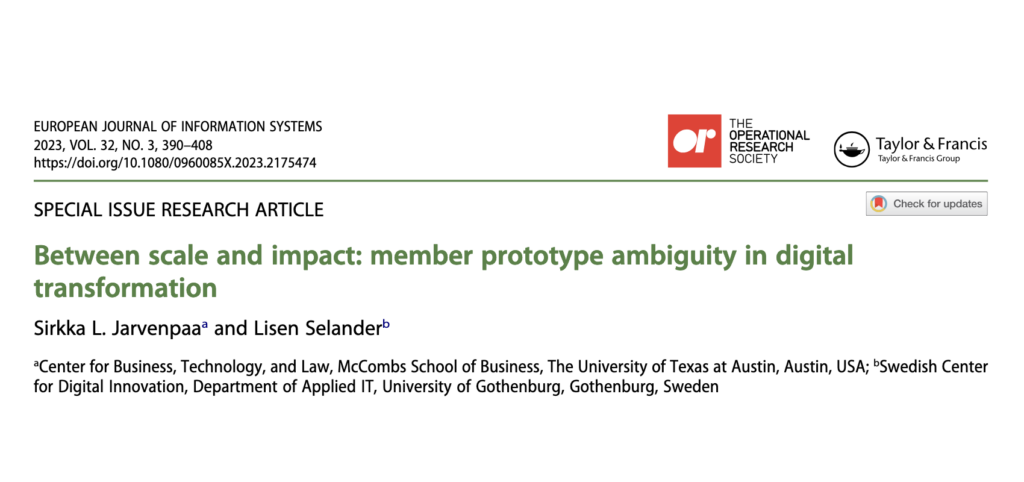
When organizations go digital to grow bigger, is bigger always better? This study follows Amnesty International’s journey of using digital technology to rapidly expand its membership base. While social media and online platforms helped Amnesty attract many new supporters, researchers found this quick growth created unexpected challenges. The organization struggled to maintain its unified identity as new digital members showed different patterns of engagement compared to traditional local groups. The research reveals important lessons about the tensions between rapid digital growth and maintaining meaningful social impact – insights valuable for any organization navigating digital transformation today.
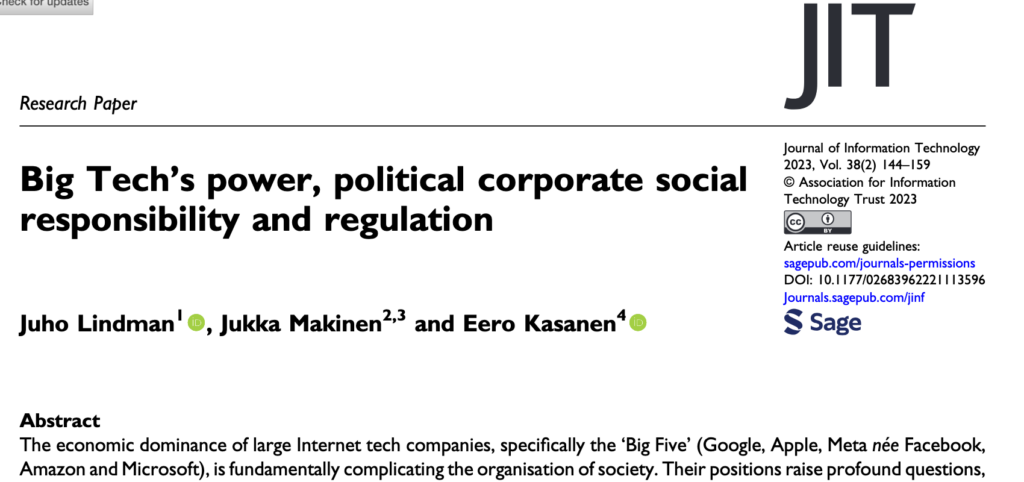
Big Tech companies like Google, Apple, Meta, Amazon, and Microsoft hold significant power that affects society and democracy. This article examines their influence and the challenges in regulating them. It discusses different views on corporate social responsibility and suggests new regulatory frameworks to ensure these companies do not undermine democratic values and citizens’ rights.
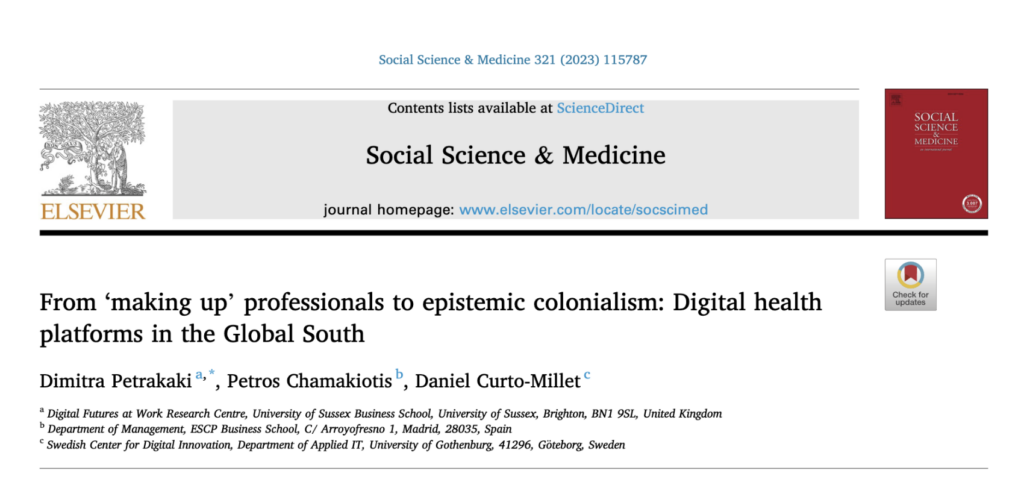
Digital health platforms are transforming healthcare in the Global South, but are they also subtly imposing Western values? This article explores how platforms like MedicineAfrica, designed to educate healthcare workers in countries like Somaliland, may unintentionally perpetuate a form of digital colonialism. By transferring medical knowledge that often doesn’t fit the local context, these platforms can alienate local professionals from their own practices.
2022
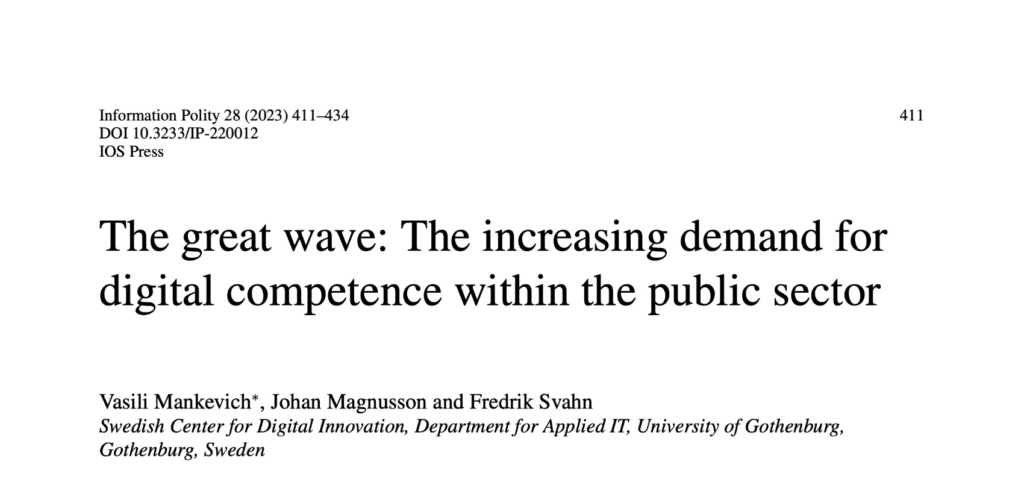
The demand for digital skills in Sweden’s public sector has surged over the past decade, yet it still trails behind the private sector. This article explores how digital competence is evolving within public organizations, highlighting the challenges and opportunities for digital transformation. Discover how events like the COVID-19 pandemic and economic crises have influenced this trend, and what it means for the future of public sector innovation.
2021
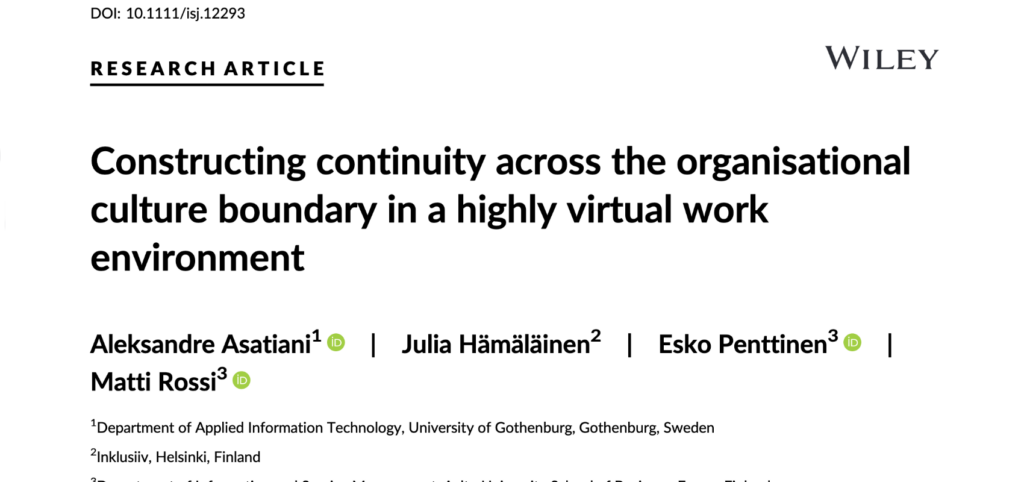
This article explores the creation process of a digital organizational culture handbook at Smartly.io, a rapidly growing digital company. The study highlights the challenges of maintaining a cohesive culture without face-to-face interactions and offers insights into designing effective socialization substitutes. By combining theory and practical design principles, the study provides valuable lessons for organizations navigating the complexities of remote work.
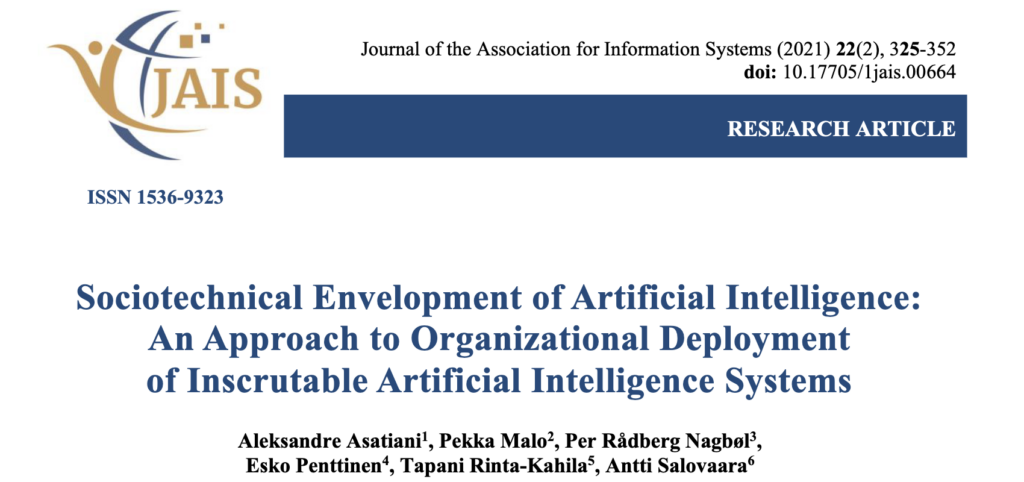
Artificial intelligence (AI) is transforming how organizations operate, but its complexity often makes it hard to understand. This article explores a new approach called “sociotechnical envelopment,” which helps organizations use advanced AI systems safely and responsibly. By balancing technical capabilities with human oversight, this method ensures AI can be both powerful and accountable.
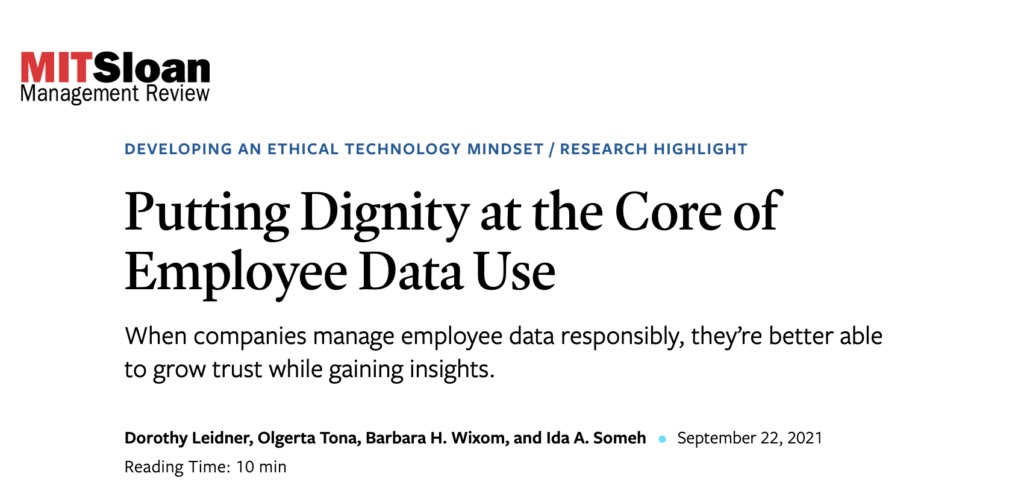
In today’s digital age, companies collect vast amounts of data about their employees, from work activities to health information. This article explores how organizations can use this data ethically, focusing on maintaining employee dignity. By treating employees with respect and transparency, companies can build trust and achieve better results. Discover how putting dignity at the core of data use can benefit both employees and organizations.
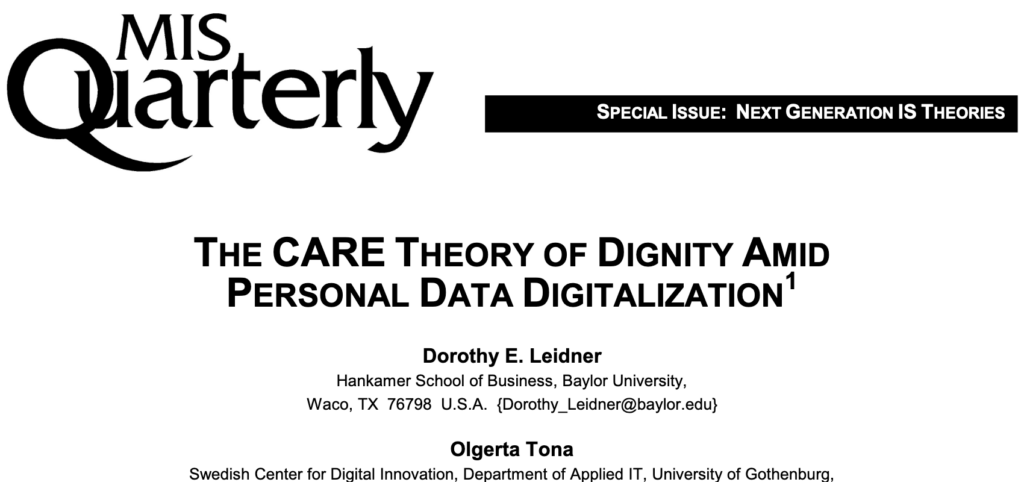
The CARE Theory of Dignity explores how increasing digitalization of personal data impacts our sense of human dignity. The theory looks into the benefits and risks of personal data digitalization, highlighting how it can both empower and threaten our intrinsic value as human beings. By understanding these dynamics, we can better navigate the digital age with respect for our own and others’ dignity.
2020
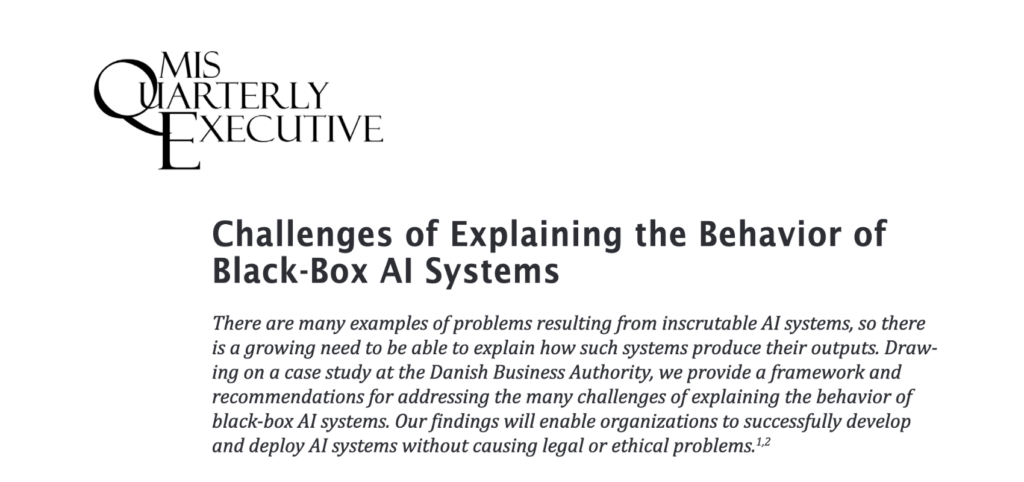
Artificial Intelligence (AI) is transforming how organizations operate, but understanding how AI systems make decisions can be challenging. This article delves into the complexities of explaining the behavior of “black-box” AI systems, which often operate in ways that even their creators can’t fully explain. By examining a case study from the Danish Business Authority, the article offers practical recommendations for making AI systems more transparent and trustworthy.
2019
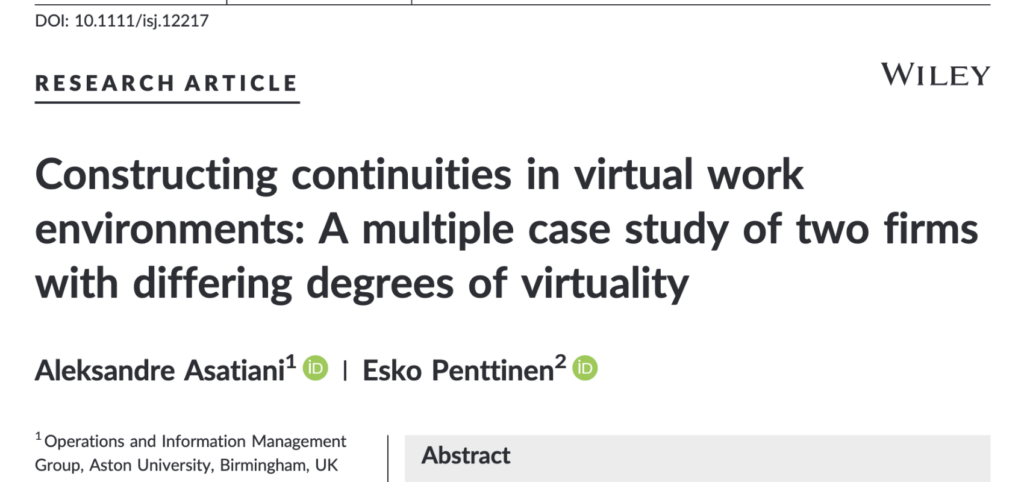
This article studies how two accounting firms each with different levels of virtuality, managed to maintain continuity in their operations. By comparing their approaches, the study uncovers the strategies and tools that help these firms overcome the challenges of remote work.
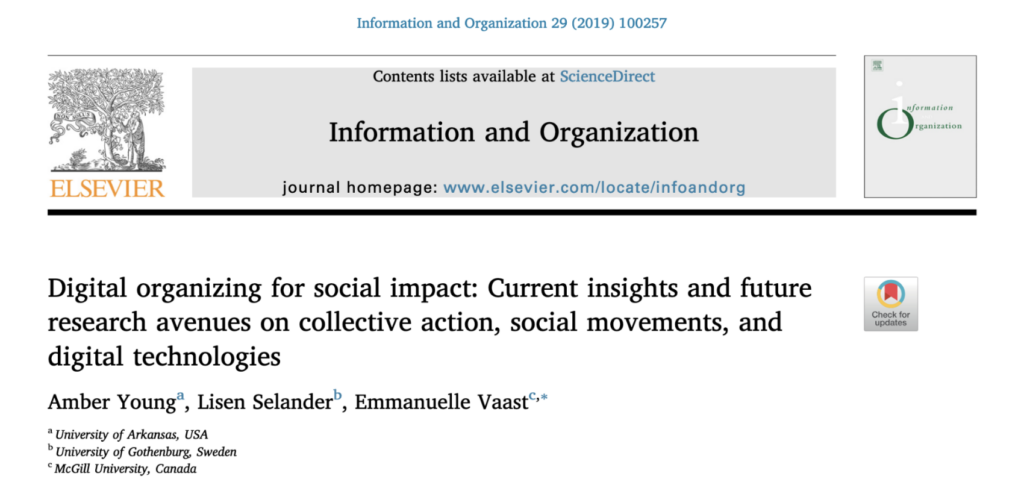
As digital technologies transform how people come together for social change, new opportunities and challenges emerge. This article examines how social media and other digital tools are reshaping collective action and social movements, bringing together insights about new actors (including both humans and bots), evolving technologies, and changing patterns of information flow. While digital tools make organizing easier than ever, they also introduce new risks and unintended consequences that deserve careful consideration.
2016
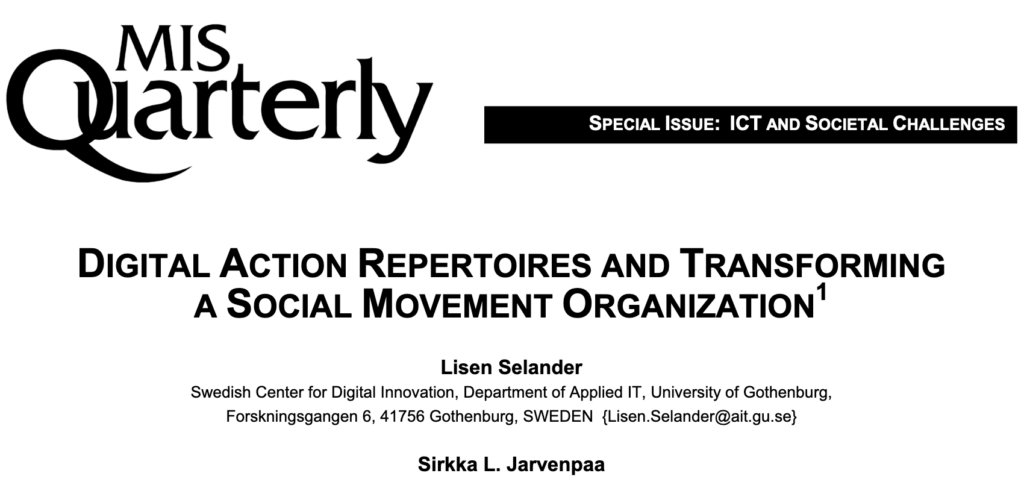
This study reveals how social media and other digital tools can both stabilize and challenge the values of social movement organizations. By examining the transformation in engagement and interaction, the article highlights the delicate balance between maintaining organizational values and embracing new, autonomous forms of digital activism.
